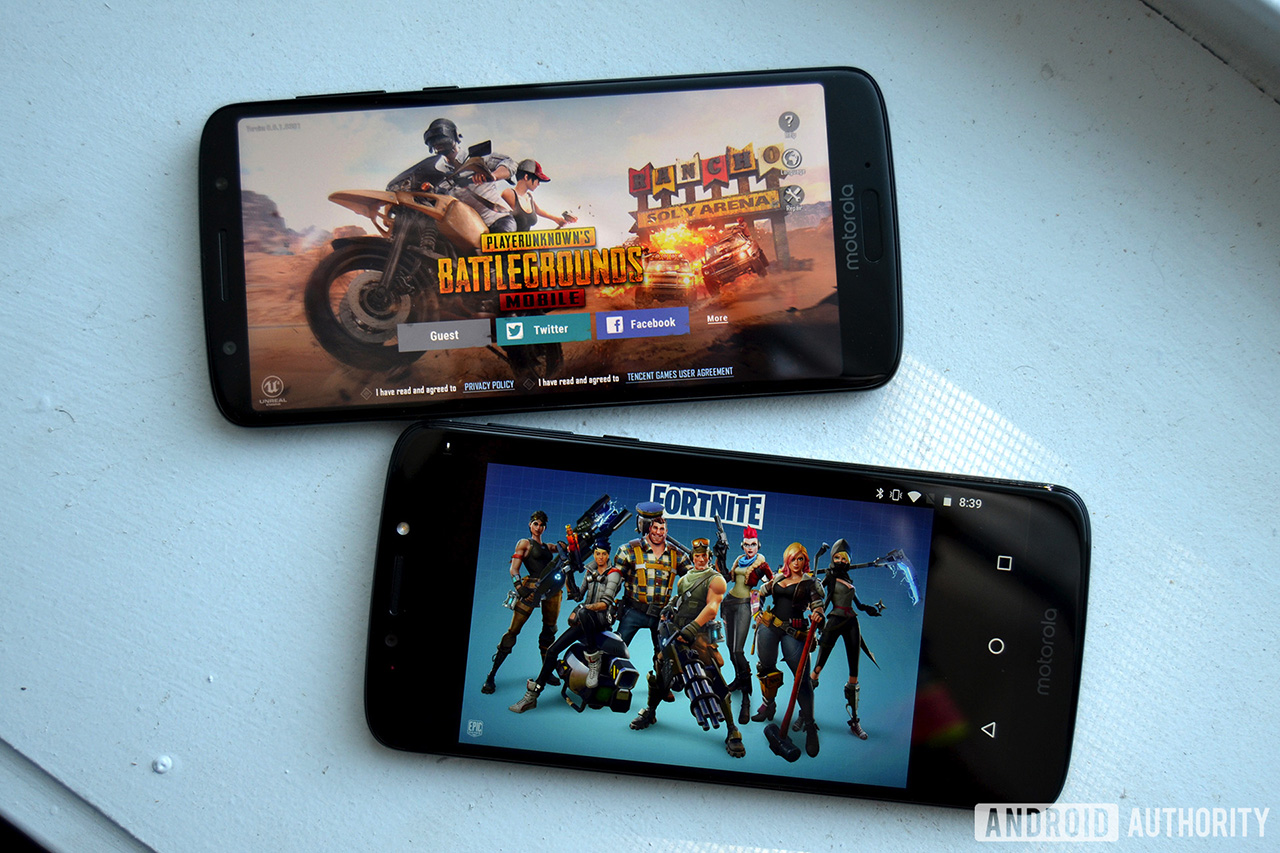
Earlier today, we found evidence suggesting that Epic Games — the creator of the mega-hit battle royale shooter Fortnite — might not release the Android version of the game on the Google Play Store. Instead, it might instruct users to download the APK file directly from the company.
The evidence we have that this might be the case is a hidden set of instructions listed on the Fortnite Mobile webpage which appears to guide users through the process of installing an app from outside the Play Store. While this, in itself, isn’t evidence that the company plans to exclusively release Fortnite without Play support, it does certainly point to that being a possibility.
If you think about it, doing so would make sense for Epic Games, considering that Fortnite for PC (the original platform for the global sensation) also eschewed major game store platforms like Steam and Origin. Bypassing the Play Store would additionally prevent Epic Games from having to share a cut of the game’s profits with Google — a clear benefit.
However, it would be a horrible mistake to release Fortnite for Android without the Google Play Store if for only one reason: setting a dangerous precedent.
Bypassing the Play Store is easy (but dangerous)

Most every Android user understands the process of downloading and installing an application from the Google Play Store. Google works hard to make sure the process is so simple that even a child can do it (and trust me, they do).
But many Android users might not even know that downloading apps from websites (and even other app stores) is possible. One could argue that Google working to keep users unaware of just how open source Android really is when it comes to installing applications is a justification for the company having to pay a $5 billion antitrust fine — but that’s not what we want to focus on here.
What we want to focus on is that even though Google doesn’t promote the process of installing apps from outside the Play Store, the process itself is almost as easy as doing so the “official” way. All you have to do is a flip a switch in your Android settings, give confirmation of the change via a dialog box, and you’re ready to download and install anything you like from whatever site you choose.
Of course, the whole reason Google tries to dissuade you from downloading applications from outside the Play Store is that those applications aren’t subject to any regulation. This gives malicious developers the freedom to create and disseminate all manners of malware that you could unknowingly install.
And let’s be frank: a lot of people will be looking to download Fortnite for Android. Where there are that many potential suckers, there are going to be plenty of malicious app developers looking to exploit the inexperience of those gamers.
This could make a current problem even worse

Right now, an official copy of Fortnite for Android isn’t publicly available anywhere. But if you do a search on Google for “fortnite beta” or “fortnite apk,” you’ll come up with a wealth of links to download an alleged copy of the game to your Android device.
All of these links are fake and most of them will almost certainly be malware.
If Epic Games decides to forego the Play Store and distribute Fortnite for Android via downloadable APKs, that will make this problem even worse. It will be difficult for consumers to know where to get the game, and many will be easily swayed by false online advertisements, malicious links on social media, and seemingly legit YouTube videos.
It also doesn’t help that Fortnite is rated “T for Teen” by the Entertainment Software Rating Board (ESRB), which will make many parents comfortable with their kids downloading the game themselves. If the APK the child downloads does contain malware, and that malware is designed in such a way to take advantage of child naiveté, that could create some serious issues.
To be fair, this problem exists right now through no fault of Epic Games. But if the company legitimizes the practice of downloading APKs from the internet rather than the Play Store, it will pour a considerable amount of fuel on an already-burning fire.
This, of course, begets the larger issue within this situation…
With great power comes great responsibility
There’s no question that Fortnite is a blockbuster hit. In only a year’s time, the game has already earned millions of players and even has an international tournament. Epic Games could release Fortnite for Android via something as inconvenient as a mail-order USB stick, and the company would still sell millions of copies.
With that kind of popularity and power, Epic Games doesn’t have the luxury of doing whatever it wants. The people in charge have to consider that the actions they take with the release and promotion of Fortnite to the billions of users on the world’s largest mobile operating system have to be the responsible choices.
Because if it doesn’t take that into consideration and releases the game outside the Play Store, it will only be a matter of time before other publishers do the same thing.
Now, I’m not suggesting that Epic Games should only distribute Fortnite via the Google Play Store and that to do otherwise would be irresponsible. The irresponsibility doesn’t come from refusing to align specifically with the Play Store, but instead from disseminating Fortnite without any kind of regulation — and then training people how to install unregulated APKs.
In a way, it would kind of be like Disney refusing to release Avengers: Infinity War on Blu-Ray, and instead training people how to torrent the file. Millions of people who have never torrented before would suddenly be torrenting who-knows-what from who-knows-where.
Teaching amateur Android users how to install anything from anywhere could have devastating consequences for Android.
If Epic Games truly does intend to release Fortnite without the Play Store, the responsible choice would be to create a new Android app platform that users can then use to download apps (not unlike Steam or Origin). This would help prevent exposing gamers to a “wild west” situation of downloading APKs from random websites.
And let’s not forget that downloading APKs from websites rather than app platforms creates the huge inconvenience (and risky proposition) of manually updating the app. Every time an update comes along you either have to download a new APK — which again puts you at risk of malware — or ignore the update, which leaves your version of the game open to other security threats. Either way is dangerous.
Whatever Epic Games chooses to do, it has to understand that other publishers will likely follow suit. With that in mind, it can’t just go hog wild and do whatever it wants; it has to consider the ramifications of its choice.
Epic Games could have other things in mind

This article is pretty doom-and-gloom, which is appropriate considering just how bad it could be if Epic Games releases Fortnite for Android via a website-hosted APK. But I’d like to close out here with an admission that we have no idea what the company has in mind.
We know that Epic Games has instructions hidden on a Fortnite website that teach you how to install an APK from outside the Play Store. There are many possible reasons for this that would make sense.
For example, it could be that a Fortnite for Android beta is coming soon, and the way users will get the beta version is to install from a website. That would be a bad move for the same reasons listed above, but if the stable version of the game still came to the Google Play Store, it wouldn’t be nearly as bad.
We also heard a rumor that Fortnite for Android will launch exclusively for owners of the Samsung Galaxy Note 9. It is possible that these instructions listed on the Fortnite page could be directed only towards Note 9 owners, and that the wide rollout of the game will still come to the Google Play Store.
There are many possible explanations for these Fortnite instructions, and we might be making a mountain out of a molehill. But there’s no denying that releasing a game like Fortnite as a website-hosted APK could have devastating consequences, so I have my fingers crossed that that is not the case.
NEXT: Fortnite Mobile on Android: Here are the compatible phones





Comments
Post a Comment